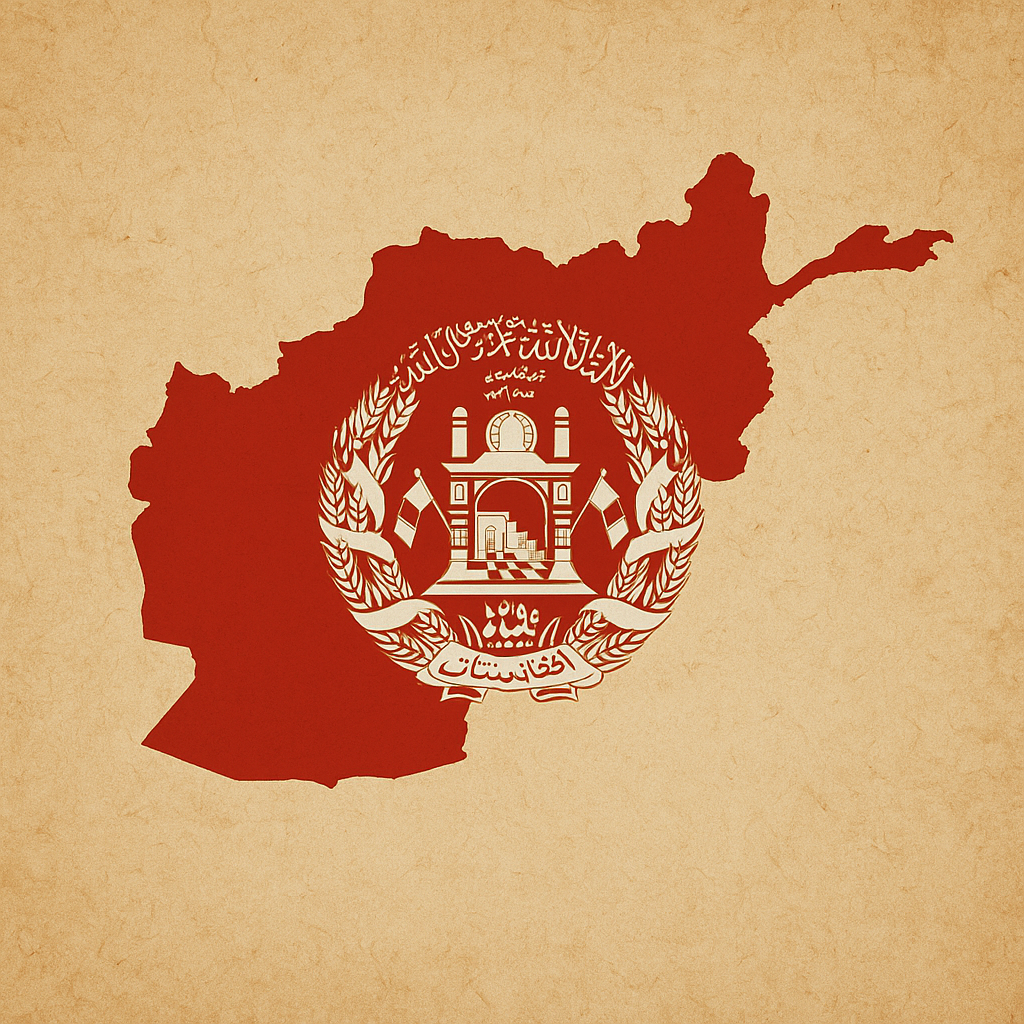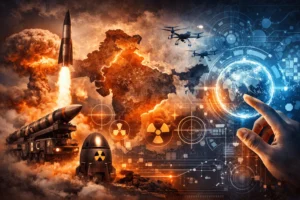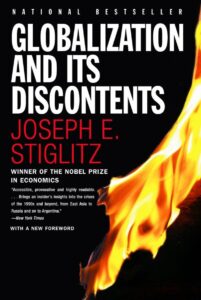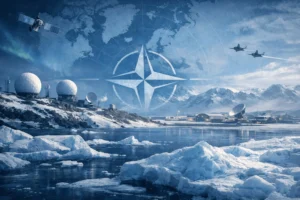Afghan Taliban’s Place in the Great Power Politics

A stylized map of Afghanistan featuring its national emblem, highlighting the country's heritage and sovereignty.
History not only repeats itself, but it also reverses the roles. On 3rd July, 2025, Russia became the first ever country to formally recognize the Taliban government in Afghanistan. Afghan Taliban are the descendants of the same Mujahideen who rose in resistance to the Red Army of the Soviet Union back in the 1980s. Russia is the successor state of the former USSR.
In the last quarter of the 20th century, the world was clearly divided into two poles on ideological grounds. The capitalist bloc was led by the United States, and the Communist bloc was thriving under the USSR. Both powers were actively engaged in waging proxy wars against each other across the world. In the year 1979, the USSR, in order to protect its failing allied government in Afghanistan, invaded the country. This was one of the pivotal moments in the 45 years of Cold War history.
This invasion led the United States to wage a proxy war against the Red Army in order to prevent Communism from spreading into South Asia and the Middle East. With the assistance of the United States, fighters from Pakistan and Afghanistan, labelled as Mujahideen, fought the USSR forces for almost a decade and succeeded not only in throwing out the Red Army from Afghanistan, but also gave momentum to the fall of the mighty USSR, which eventually collapsed, giving birth to fifteen independent states including Russia.
The dissolution of the Soviet Union in 1991 resulted in a unipolar world. For the very first time in world history, the world came under the authority of one superpower, the United States. It was such a momentous moment that it inspired the American political scientist, Francis Fukuyama, to declare that the world has now reached the end of history, with American democracy as the winner. Moreover, this victory gave the US an illusion that it could now police the world to spread its so-called ideas of freedom, democracy and human rights. This ambitious goal of Washington has so far resulted in the devastation of several countries including Afghanistan, Iraq, Syria and Libya.
Four decades after the end of the bipolar world, in August 2021, another great power submitted to the will of Afghan Taliban and put an end to its 20 years of futile efforts to establish a modern democracy there and eradicate terrorist networks. This time it was none other than the United States itself who nourished the Taliban in the 80s. This was a clear manifestation of the declining power of the US and emergence of a multipolar world order.
The former global policeman is no longer in a position to impose its hegemony, and its great power status is under threat from the rise of China. The world is now under a massive shift from unipolarity to multipolarity. It is under complete chaos owing to the ongoing Russia-Ukraine war and the turmoil in the Middle East. Russia, sanctioned by the US and its allies, is now trying to court the countries, such as Iran, North Korea and Afghanistan, which are disgruntled with the hegemonic role of the Washington.
Russia is trying to build its own empire on the fault lines of the US. This was one of the reasons behind Moscow’s recent recognition of the Taliban-led Afghan government. Despite having a strong desire to establish diplomatic relations with the Islamic Emirate of Afghanistan, all the other countries are reluctant to do so to avoid being sanctioned by the United States. However, Russia has done so because it has nothing to lose as it is already under thousands of Western sanctions.
Another reason is to find a partner in Asia, after the fall of Bashar al-Assad regime in Syria, Russia’s strong ally in the Middle East. It would try to empower its new diplomatic partner, so that in the future it might use this relationship to counter American influence.
Furthermore, Russia needs trade partners to keep its economy working. Russia’s invasion of Ukraine dealt a heavy blow to its economy and is continuously draining its financial resources. On the other hand, Afghan economy is also in a devastating condition and its assets are frozen because of the ruling Taliban government’s unwillingness to form an all-inclusive government. Hence, it is a win-win situation for both the parties.
Lastly, Russia is facing several terrorist threats; on 22 March, 2024, a brutal terrorist attack occurred in Russia. The responsibility of the attack was claimed by ISIS-K, based in Afghanistan. Therefore, by establishing strong ties with the Taliban, Russia plans to deal with terrorism on its soil by persuading its Afghan partners to rein in the terrorist factions operating within Afghanistan. However, Afghan Taliban holds a poor record in doing so. Pakistan is currently dealing with a new wave of terrorism due to the inability of the Afghan Taliban to crack down on the terrorist groups breeding on its soil.
To sum up, Afghanistan has been the centre of global politics since the 1980s and it will remain so because of two main reasons. Firstly, it is a safe haven for notorious terrorist groups, which pose a threat to global peace and security. Secondly, it has the potential to be used as a proxy by great powers.



